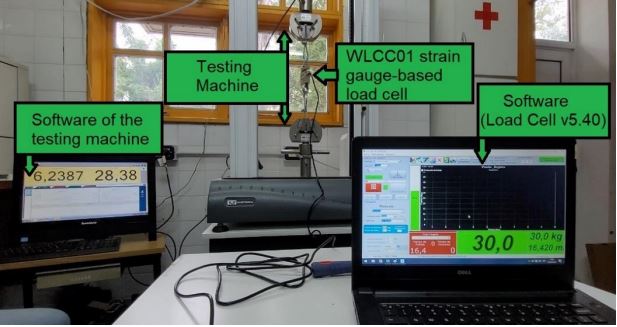Lucas Dorsch, Camila Duré, Eugenia Soledad Muñoz Larrosa, Jesica Itatí Zuchuat, Melisa Frisoli, Darío Cardozo, Paola Catalfamo Formento.
Abstract
Numerous commercial dynamometers are available on both local and international markets for the measurement of muscle strength. These measurements can guide rehabilitation and support decision making regarding return to sports activities following injuries, such as anterior cruciate ligament (ACL) injuries. However, not all dynamometers provide information regarding the accuracy of the proposed measurements, which is a critical factor for conducting assessments in both research and clinical settings. This article aims to validate the accuracy of force measurements obtained using one dynamometer, a device developed and commercialized for measurement of muscle strength in sports. The measured forces were compared with those recorded by an Instron 3367 universal testing machine. Six tensile tests were conducted, increasing the force from 50 N to 900 N over 60 seconds, during which 1002 data points were obtained. A BlandAltman analysis was then applied to compare the results. The findings indicate that the limits of agreement are [-2.5, 2.5] [N]. Based on these results, we concluded that the tested commercial dynamometer is a valid option for measurement of tensile forces.

Keywords
- Anterior Cruciate Ligament
- Dynamometer
- Muscular Strength
